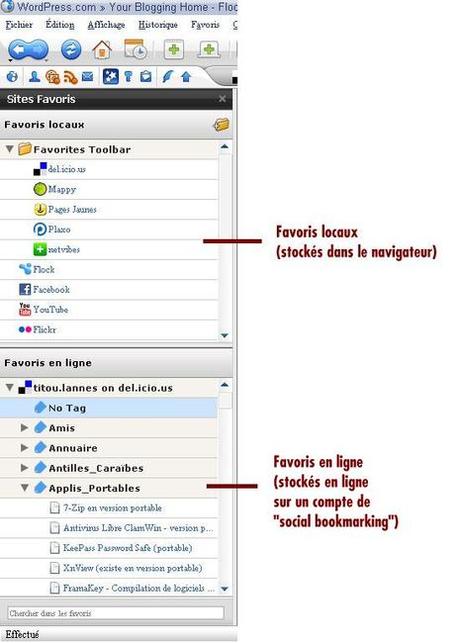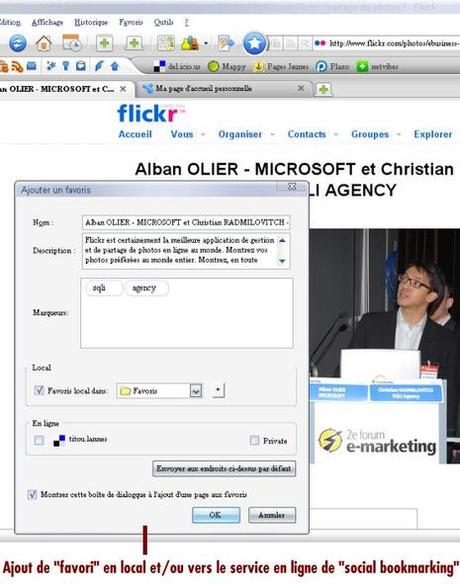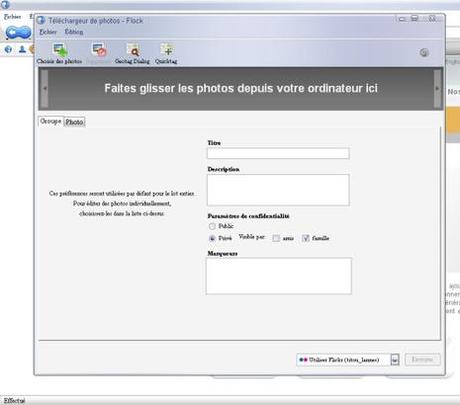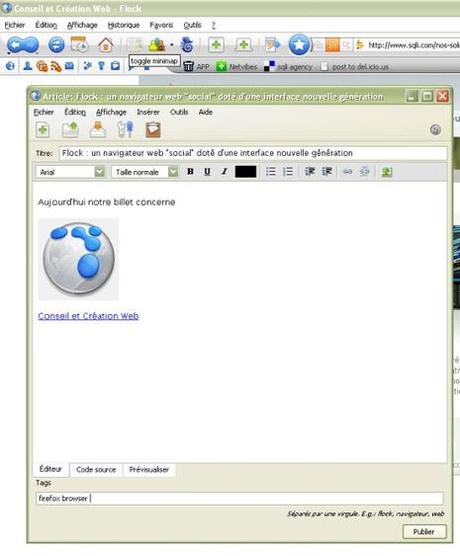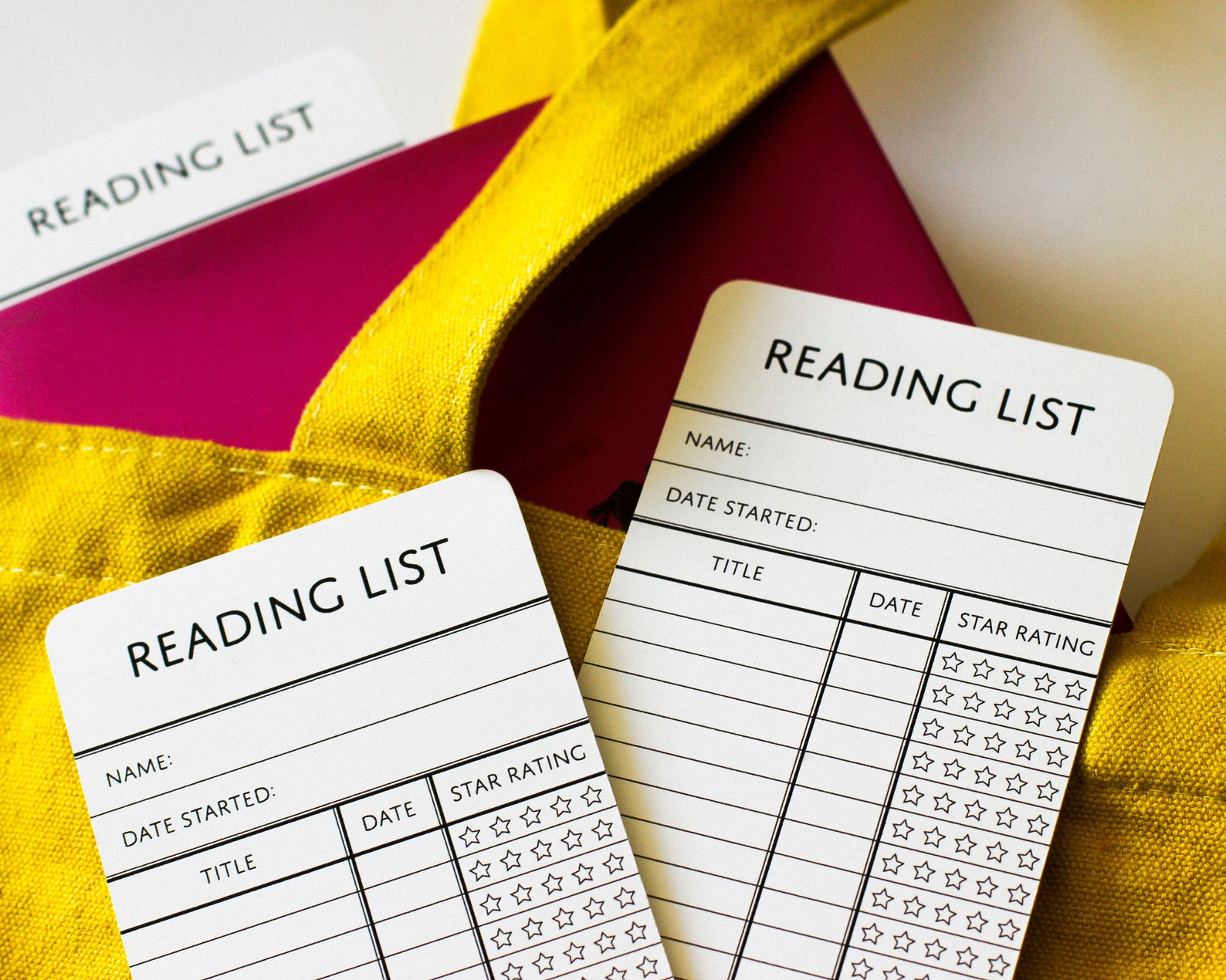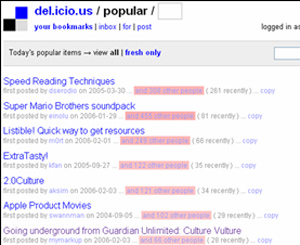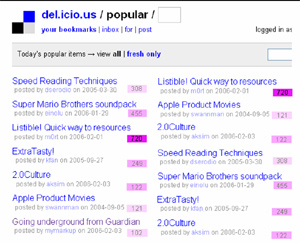73 Matching Annotations
- Jan 2026
-
scenaristeur.github.io scenaristeur.github.iobooklice1
Tags
Annotators
URL
-
- Oct 2025
-
lmammino.github.io lmammino.github.io
- Nov 2024
-
blog.ayjay.org blog.ayjay.org
-
Essay Idea: Moving beyond collecting: how to begin turning your bookmarks into something useful
-
So, though there was still some store of weapons in the Shire, these were used mostly as trophies, hanging above hearths or on walls, or gathered into the museum at Michel Delving. The Mathom-house it was called; for anything that Hobbits had no immediate use for, but were unwilling to throw away, they called a mathom. Their dwellings were apt to become rather crowded with mathoms, and many of the presents that passed from hand to hand were of that sort. — J. R. R. Tolkien, “Concerning Hobbits”
-
- Apr 2024
-
Local file Local file
-
o businesses of varied sizes are set forth and their working illustrated."We note with appreciation the author's use of "flags" as indic.itors.Our experience of these handy and ingenious little devices datesfrom their first introduction in the States, and we can endorse all that"he says in their favour.
When were bookmark-like "flags" introduced in America? (Certainly prior to 1908, based on this reference.)
-
- Mar 2024
-
-
https://www.ebay.com/itm/276403515343 <br /> archived copy
In 1984, Memindex was selling monthly planning calendars (pocket notebook size with spiral binding and a case) rather than their older small index card sized formats. Their calendar format looks eerily like what Day-Timer, a division of ACCO Brands, has been selling since at least the early 1990s.
This goes down to even the "cut here" triangles in the lower right corners of pages to help bookmark the current page.
-
- Feb 2024
-
www.lepton.ai www.lepton.ai
-
Super Resolution
ai enhanced
Tags
Annotators
URL
-
- Aug 2023
-
bilge.world bilge.world
-
https://bilge.world/text-fuck
Tags
Annotators
URL
-
-
bugzilla.mozilla.org bugzilla.mozilla.org
Tags
Annotators
URL
-
-
reasonabledeviations.com reasonabledeviations.com
-
https://reasonabledeviations.com/2022/04/18/molecular-notes-part-1/
Maybe come back to read this???
-
-
forum.eastgate.com forum.eastgate.com
- Jun 2023
-
welshclass.wales welshclass.wales
-
https://welshclass.wales/podcast%2Fpodlediad
Tags
Annotators
URL
-
- May 2023
-
search.crossref.org search.crossref.org
-
Search the metadata of journal articles, books, standards, datasets & more
Tags
Annotators
URL
-
- Mar 2023
-
www.historyperceptiongap.us www.historyperceptiongap.us
-
See also: https://www.moreincommon.com/
-
-
www.johndcook.com www.johndcook.com
-
Emacs on windows<br /> by John D. Cook
Tags
Annotators
URL
-
- Feb 2023
-
www.reddit.com www.reddit.com
-
level 2A_Dull_SignificanceOp · 2 hr. agoYes! When I run across a comment on a book I haven’t read yet but seems interesting I make a little card with the comment and book title2ReplyGive AwardShareReportSaveFollowlevel 2taurusnoises · 2 hr. agoObsidianSo, you keep the titles of books you want to read organized in folgezettel (you give them an alphanumeric ID?) among your ZK notes? That's really interesting!
I've done something like this when I think a particular reference(s) can answer a question related to a train of thought. But I keep cards of unread sources at the front of my sources section so that it's easier to pull it out frequently to prioritize and decide what I should be reading or working on next. These will then have links to the open questions I've noted, so that I can go back to those sections either as I'm reading/writing or to add those ideas into the appropriate folgezettel. These sorts of small amounts of work documented briefly can add up quickly over time. Source cards with indications of multiple open questions that might be answered is sometimes a good measure of desire to read, though other factors can also be at play.
That to-read pile of bibliographic source notes (a mini antilibrary) is akin to walking into a party and surveying a room. I may be aware of some of the people I haven't met yet and the conversations we might have, but if there are interesting questions I know I want to ask of specific ones or conversations I already know I want to have, it can be more productive to visit those first.
This sort of practice has been particularly helpful for times when I want to double check someone's sources or an original context, but don't have the time to do it immediately, don't want to break another extended train of thought, have to wait on materials, or may have to make a trip to consult physical materials that are singular or rare. For quick consultative reading, this can be a boon when I know I don't want or need to read an entire work, but skimming a chapter or a few pages for a close reading of a particular passage. I'll often keep a pile of these sorts of sources at hand so that I can make a short trip to a library, pick them up, find what I need and move on without having to recreate large portions of context to get the thing done because I've already laid most of the groundwork.
-
-
www.pearltrees.com www.pearltrees.com
-
http://www.pearltrees.com/barockschloss/knowledge-management-germany/id12863560
Knowledge Management in Germany by Barockschloss
Example of someone using the social bookmarking application Pearltrees as a form of digital zettelkasten. They've created a collection of cards about zettelkasten.
-
-
www.newyorker.com www.newyorker.com
-
Consider Eco’s caution against “the alibi of photocopies”: “A student makes hundreds of pages of photocopies and takes them home, and the manual labor he exercises in doing so gives him the impression that he possesses the work. Owning the photocopies exempts the student from actually reading them. This sort of vertigo of accumulation, a neocapitalism of information, happens to many.” Many of us suffer from an accelerated version of this nowadays, as we effortlessly bookmark links or save articles to Instapaper, satisfied with our aspiration to hoard all this new information, unsure if we will ever get around to actually dealing with it.
neocapitalism of information!!
Is information overload compounded by our information hoarding tendencies?
-
-
www.pearltrees.com www.pearltrees.com
-
bookmark tool in the vein of pinboard, pinterest, etc.
Tags
Annotators
URL
-
- Jan 2023
-
socialhub.activitypub.rocks socialhub.activitypub.rocks
-
-
https://del.icio.us is up ! 🥳
Can log in, browse through bookmarks and export them.
-
- Dec 2022
-
-
simonhong commented Dec 11, 2020 @pitsi That homepage option is related with below homepage option. If homepage is configured, new tab will show that url. Loading local html file in new tab is not supported.
I came here looking for a way to change the default New Tab Page in Brave to open up to my Hypothes.is bookmarks.
This was passage was only part of the solution. The full solution is as follows: 1. Go to Settings > Appearances - brave://settings/appearance 2. Under "Show home button", select website you want to open as New Tab Page 3. Go to Settings > New Tab Page - brave://settings/newTab 4. Change from "Dashboard" to "Homepage"
-
- Aug 2022
-
del.icio.us del.icio.us
-
-
www.paperblog.fr www.paperblog.fr
-
paulstamatiou.com paulstamatiou.com
-
Integrated Blogging


Del.icio.us Integration

Flickr Integration

-
-
getpocket.com getpocket.com
-
-
www.programmableweb.com www.programmableweb.comPocket1
Tags
Annotators
URL
-
- Jun 2022
-
designjustice.org designjustice.org
-
www.youtube.com www.youtube.com
-
smart bookmark
Article here: https://stevensonenglish.org/eng38101-licastro17/2017/05/06/the-smart-bookmark/
-
-
datatracker.ietf.org datatracker.ietf.org
- May 2022
-
www.bobdc.com www.bobdc.com
Tags
Annotators
URL
-
-
- Apr 2022
-
api.groundspeak.com api.groundspeak.com
Tags
Annotators
URL
-
-
www.programmableweb.com www.programmableweb.com
Tags
Annotators
URL
-
-
www.geocaching.com www.geocaching.com
Tags
Annotators
URL
-
-
www.programmableweb.com www.programmableweb.com
Tags
Annotators
URL
-
-
www.bibsonomy.org www.bibsonomy.org
Tags
Annotators
URL
-
-
scottberkun.com scottberkun.com
- Mar 2022
-
readlists.jim-nielsen.com readlists.jim-nielsen.com
-
https://readlists.jim-nielsen.com/
<small><cite class='h-cite via'>ᔥ <span class='p-author h-card'>Jim Nielsen</span> in (Re)Introducing Readlists (<time class='dt-published'>03/25/2022 23:09:14</time>)</cite></small>
-
-
www.w3.org www.w3.org
- Feb 2022
-
www.ifthencollection.org www.ifthencollection.org
-
hypothesis.readthedocs.io hypothesis.readthedocs.io
-
Projects extending Hypothesis¶ Hypothesis has been eagerly used and extended by the open source community. This page lists extensions and applications; you can find more or newer packages by searching PyPI by keyword or filter by classifier, or search libraries.io.
list of hypothesis based apps
-
-
en.wikipedia.org en.wikipedia.org
-
I ought to spend some more time learning some of these keyboard shortcuts.
https://en.wikipedia.org/wiki/Windows_key
https://www.wired.com/story/quick-select-keyboard-shortcuts-no-mouse/
-
- Dec 2021
-
12ft.io 12ft.io
-
Bypass any paywall,https://12ft.io/<URL>
-
-
www.w3.org www.w3.org
Tags
Annotators
URL
-
- Oct 2021
-
android.stackexchange.com android.stackexchange.com
-
let bookmarkList = Array.from(document.querySelectorAll('.widget>.vbox')) .map(e => e.shadowRoot) .map(e => e && e.querySelector('.device-page-list')) .find(e => e); let bookmarks = Array.from(bookmarkList.querySelectorAll('.vbox')) .map(e => `[${e.querySelector('.device-page-title').innerHTML}](${e.querySelector('x-link').innerHTML})`); copy(bookmarks.join('\n'));
-
- Aug 2021
-
blogs.princeton.edu blogs.princeton.edu
-
www.khanacademy.org www.khanacademy.org
-
-
And then there is, finally, the multi-dynamic bookmark – and the story of how a new specimen of this type was discovered. The qualifier “multi-dynamic”, which is my own, refers to the fact that this bookmark is of the moving type, while at the same time it is able to do much more than simply marking a page. The bookmark’s use is as simple as it is clever. This becomes clear when we look at the bookmark in action, for example in this twelfth-century Bible in the Houghton Library.
The so-called "multi-dynamic" bookmark was a string (or strip of parchment) with a sliding pocket and a spin-able disk to allow one to indicate how far down a page and which column (typically columns 1-4) one was last reading.
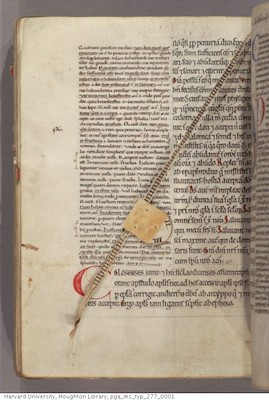
My own personal digital version of this is with Hypothes.is. I'll sometimes create a highlight or annotation of a portion of a text (especially with longer digital books) where I was last reading. When I return to the text, I can click on my last marked annotation and begin re-reading from there.
-
Evidently, these two groups of bookmarks—static and dynamic—provided very different approaches to marking information—and thus to a book’s use. Readers who added clip-on or “spider” bookmarks anticipated they would need to retrieve information not from one single page but from a changing number of pages. In other words, movable bookmarks served an audience with a shifting knowledge “appetite,” while the static ones encouraged a more “ritual” use of a book. In other words, both types are telling, in their own way, about medieval reading culture.
Static bookmarks may have indicated "ritual" or habitual use of books and the information they contained, while dynamic bookmarks may indicate the need for retrieving (temporary) information from one or more pages.
-
The solution to the vanishing bookmark came in the form of what is called a “register bookmark." This type, which looks like a spider with its legs trapped, was securely fastened to the top of the binding (visible below), so it couldn’t get lost. Additionally, the bookmark allowed the reader to mark multiple locations in the book.
Register bookmark
-
-
www.youtube.com www.youtube.com
-
He mentions Amazon wishlists that pile up and never get used. Similar to the way people pile up bookmarks and never use or revisit them.
One of the benefits of commonplace books (and tools like Obsidian, et al.) is that one is forced to re-see or re-discover these over time. This restumbling upon these things can be incredibly valuable.
-
- Jul 2021
-
commonplaces.io commonplaces.io
-
This looks like a bookmarking service that is billing itself as a digital commonplace book. I'm not sure about the digital ownership aspect, but it does have a relatively pretty UI.
Looks like it works via a Chrome extension: https://chrome.google.com/webstore/detail/commonplaces-your-digital/ckiapimepnnpdnoehhmghgpmiondhbof
-
-
www.bibsonomy.org www.bibsonomy.org
-
The easy way to manage scientific publications and bookmarks
BibSonomy helps you to manage your publications and bookmarks, to collaborate with your colleagues and to find new interesting material for your research.
-
- Jun 2021
-
www.nytimes.com www.nytimes.com
-
To this end, Bridle has started a site called Open Bookmarks, a discussion forum on which people can hash out the basic rules of capturing electronic metadata.
It used to reside here: http://booktwo.org/openbookmarks/about/ but isn't active anymore.
A newer incarnation is here: http://booktwo.org/notebook/open-bookmarks-the-beginning/ but it too appears to be dead
-
-
booktwo.org booktwo.org
-
<small><cite class='h-cite via'>ᔥ <span class='p-author h-card'>Sam Anderson</span> in ‘What I Really Want Is Someone Rolling Around in the Text’ - The New York Times (<time class='dt-published'>06/09/2021 12:13:02</time>)</cite></small>
-
- Nov 2020
-
www.technotification.com www.technotification.com
-
Thanks for posting this helpful, well written article. Learning programming, or any other thing one takes up, requires you to sit at one place have a plan of action for your study.
I was going through my Firefox bookmarks and I found article. I had read this article two years back and had commented that I found it to be useful. I read it back in May 2018. As of now, November 2020, my programming skills are still novice-level. I haven't implemented the ideas or followed suggestions given here.
It has been 2 years and 5 months since I found this article to be relevant and it baffles me that I haven't taken action by making use of the knowledge given in this article. Two long years flew by. I guess reviewing my bookmarks is something that I will do more often.
The article was posted on May 23, 2018 and I had stumbled on it the next day itself, i.e., May 24, 2018. This gets me thinking that we could finds solutions for problems(latest ones in this case) once we identify it, articulate it, hit the search button and just read stuff. I could presume that what happened next was that I misunderstood "finding a solution" to "realizing the solution", and perhaps became complacent or maybe there were more problems that didn't come to my awareness to identify and further find solutions. I'm not quite sure. Should I have identified my problems and googled more so that I could have learned C and C++ sooner?
I wonder what held me back from taking action to accomplish and master something that usually takes not more that 5-6 months maximum.
-
- Oct 2020
-
hapgood.us hapgood.us
-
The shortest explanation of Wikity I can provide is this: Wikity is social bookmarks, wikified.
-
- Oct 2018
-
addons.mozilla.org addons.mozilla.org
- Sep 2018
-
www.overnightprints.com www.overnightprints.com
-
Bookmarks are a creative way to connect with
Tags
Annotators
URL
-
- Jul 2018
-
wiobyrne.com wiobyrne.com
-
I have the option to link the main link for the bookmark to the Hypothesis link for “all annotations” on the source, but I’m thinking most readers will want to go directly to the source to read more.
Again, when I click what I think is a link to take me to "all annotations available in the source" or even to the source, all I get is a black framed version of this block quote. Really confusing...
-
all annotations in the source in the open for the bookmark
Maybe I'm confused as to what you are intending with this example, but when I click on "here" in the line below--or anywhere in the entire block, I'm just taken to a black framed version of the quote.
-
- Jan 2018
-
readwriterespond.com readwriterespond.com
-
With Radio3, the publicised links connect to the corresponding site, whereas when I bookmark using my site, it shares the link to my post rather than the original site. This has me rethinking why I bookmark and POSSE. Maybe I do not need to share links to the original source, especially when my bookmarks have secondary information.
I wonder about this sometimes as well and have even contemplated crazy machinations for changing the canonical URL of my own posts to point to the originals.
I'm still a long way from figuring this out completely.
-
- Oct 2016
-
www.thehindu.com www.thehindu.com
-
page note as a bookmark coz its ONLY one for 1 webpage while annotations may be many.
-
- Sep 2016
-
www.thehindu.com www.thehindu.com
-
www.thehindu.com www.thehindu.com
-
Harangi reservoir capacity(not mentioned here) is 8.45 TMCFT
-
- May 2016
-
tagteam.harvard.edu tagteam.harvard.edu
-
Input feed: lkfitz's bookmarks
-
- Jan 2014
-
support.mozilla.org support.mozilla.org
-
Bookmarks are just a special case of annotations
-
